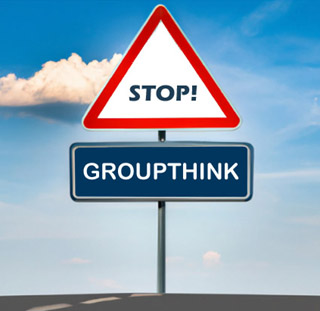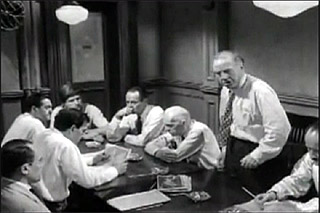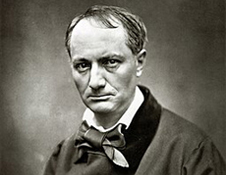 Hello there! 😀
Hello there! 😀
|
|
|
|
|

Hunt had suggested three years ago, in the early part of the pandemic, that the UK's slow response to Covid was partly down to "groupthink" among top scientists and civil servants. He said there had been inadequate learning from previous outbreaks of SARS and MERS in Asia. This time around, he conceded that he himself had some responsibility for the "deeply entrenched" assumption that a pandemic could not be halted.
Groupthink, in my view, is rife throughout commerce, industry and society in general. We are programmed to accept the prevailing view, rather than to consider evidence carefully and draw our own conclusions about the matter in hand - and then, most importantly, argue to change the opinions of others. This is clearly what happened (or, rather, didn't happen) in the case of managing aspects of the response to Covid. Hunt's admission is all very fine; but a system which puts politicians with such poor managerial skills in charge of momentous decision-making is fundamentally flawed.

The importance of giving proper, detailed consideration to available evidence when making life-changing decisions - and then arguing one's case - was possibly never better illustrated than by the classic Hollywood movie Twelve Angry Men. At the start of the film, a jury of twelve begins by voting 11-1 in favour of the guilt of the accused. The solitary dissenter succeeds, in the course of the movie, in gradually convincing all the other jurors of the innocence of the accused man. Groupthink might have seen the man pay the ultimate price ...

Although the specific term "groupthink" was coined in 1952 by social and cultural theorist William H Whyte, drawing on ideas contained in George Orwell's Nineteen Eighty-Four, it was social psychologist Irving Janis who brought the concept to prominence in 1972. Janis developed the theory to explain a phenomenon he observed in decision-making processes within groups. He defined groupthink as a psychological pattern that occurs when a group of people makes faulty or irrational decisions due to the desire for harmony or conformity within the group, leading to a loss of critical thinking and independent judgment.
According to Janis, groupthink tends to occur in cohesive groups with strong internal harmony and a high degree of conformity. He outlined several key factors that contribute to groupthink ...
1. High group cohesiveness: when group members have a strong desire to maintain harmony and avoid conflict, they may suppress dissenting opinions and conform to the dominant group viewpoint.
2. Directive leadership: authoritarian leaders who discourage dissent and promote their own viewpoints can inhibit critical thinking and independent decision-making.
3. Insulation from outside opinions: groups that are isolated from external perspectives and feedback may become more susceptible to groupthink.
4. Lack of methodical decision-making procedures: if a group does not have systematic methods to evaluate alternatives, they may rely on hasty and biased decision-making processes.
5. Illusion of invulnerability: group members may develop an overconfidence in their abilities and underestimate potential risks or negative consequences.
6. Belief in the inherent morality of the group: when a group believes they are inherently right or morally superior, they may dismiss alternative viewpoints and ethical concerns.
7. Self-censorship: group members may choose to withhold their dissenting opinions or concerns to maintain group cohesion and avoid social rejection.
8. Illusion of unanimity: the perception of unanimous agreement within the group can further suppress dissenting opinions, even if they exist.
Janis emphasised that groupthink leads to poor decision-making outcomes, such as the failure to consider alternatives, incomplete examination of risks, and a tendency to overlook ethical implications. He argued that groupthink could be mitigated by promoting open communication, encouraging diverse perspectives and fostering a culture that values critical thinking and independent judgment.
In fact, since its introduction, the concept of groupthink has been widely studied and applied in various fields, including psychology, sociology, organisational behaviour and political science. It has become a valuable framework for understanding and analysing the dynamics of group decision-making and the potential pitfalls associated with it.

In my own experience in major advertising advertising agencies working on campaigns for big brands, a routine procedure in most media planning departments was to assemble all involved planners and get them to each field their own ideas on how particular problems should be solved. The process culminated in heated debate before a final strategy was agreed - to which all the team subscribed and were well-prepared to defend in front of the client. It always struck me as a highly effective system.
How much damage is groupthink doing to the British economy? How does it affect politics, education and other vital sectors? We'll never know the full story. What influence did it have on the outcome of the Brexit referendum? What role is played by the press and other mainstream media?
Jeremy Hunt admitted that lack of rigour and/or lazy thinking contributed to the Covid death toll: "There were no questions asked at any stage as to how do we stop it getting to the stage of 200,000 to 400,000 fatalities," he said.
"It was an assumption that if there was pandemic 'flu it would spread, using layperson's terms, like wildfire. And you pretty much couldn't stop it. I think there was a groupthink that we knew this stuff best. There was a sense that, perhaps with the exception of the United States, there wasn't an enormous amount we could learn from other countries".

On the face of it, two recent moves by the Chinese government appear to be aimed at promoting greater freedom and opportunity for its citizens.
Where the arts meet psychology - making sense of synaesthesia

Is mainstream British politics all Right?

Climate crisis: two reasons to be optimistic?

Russia: the West will need to totally seal the border with its neighbour from Hell

Pomp versus pyres: ways of saying goodbye
